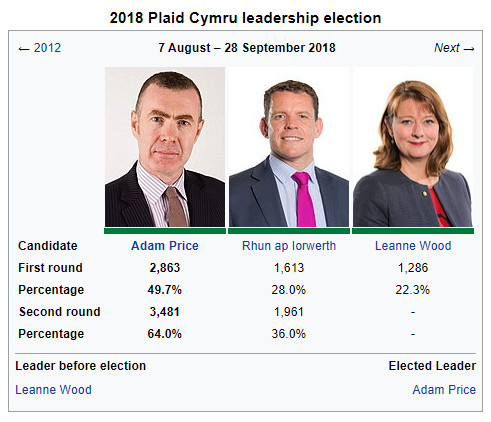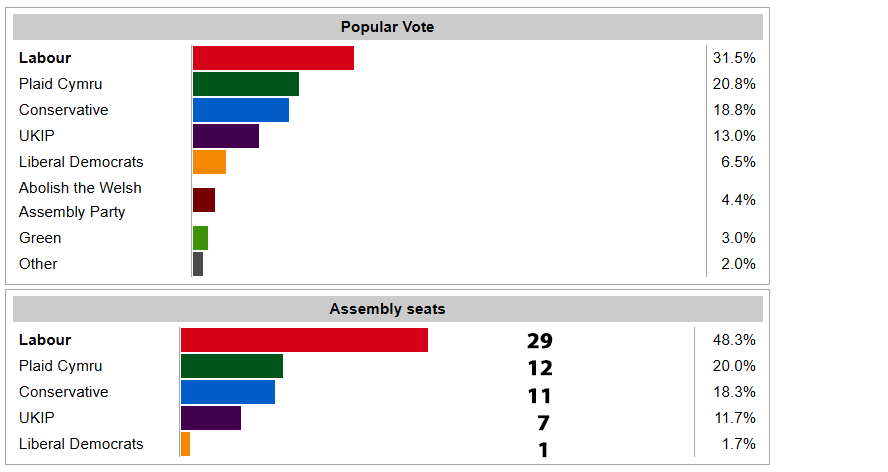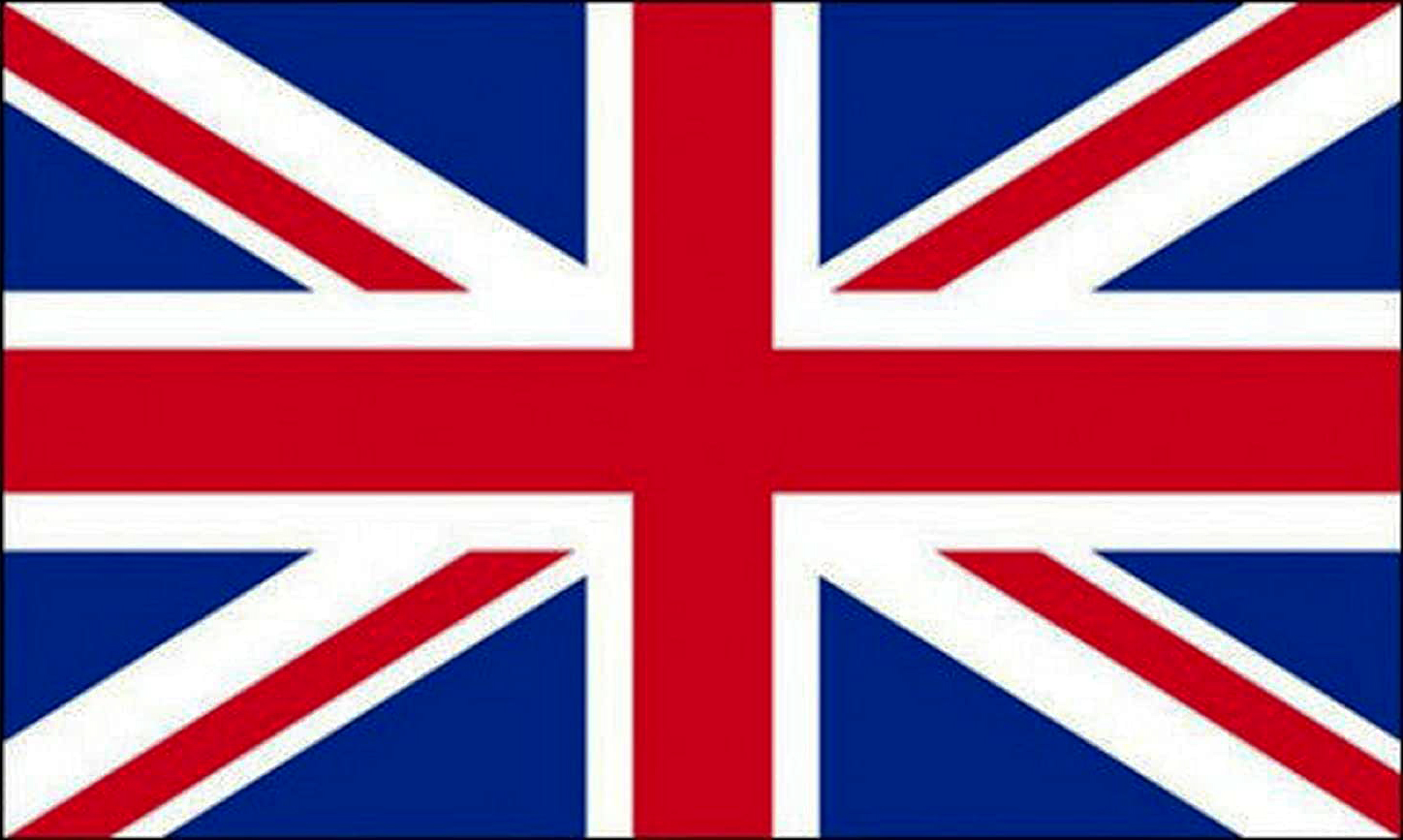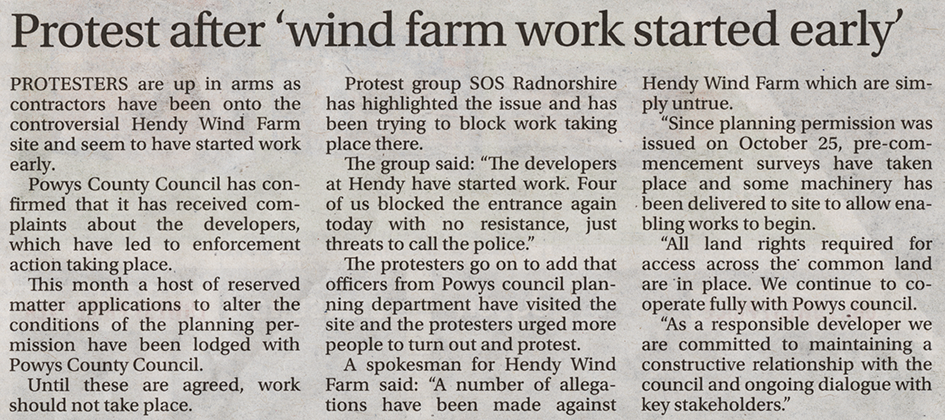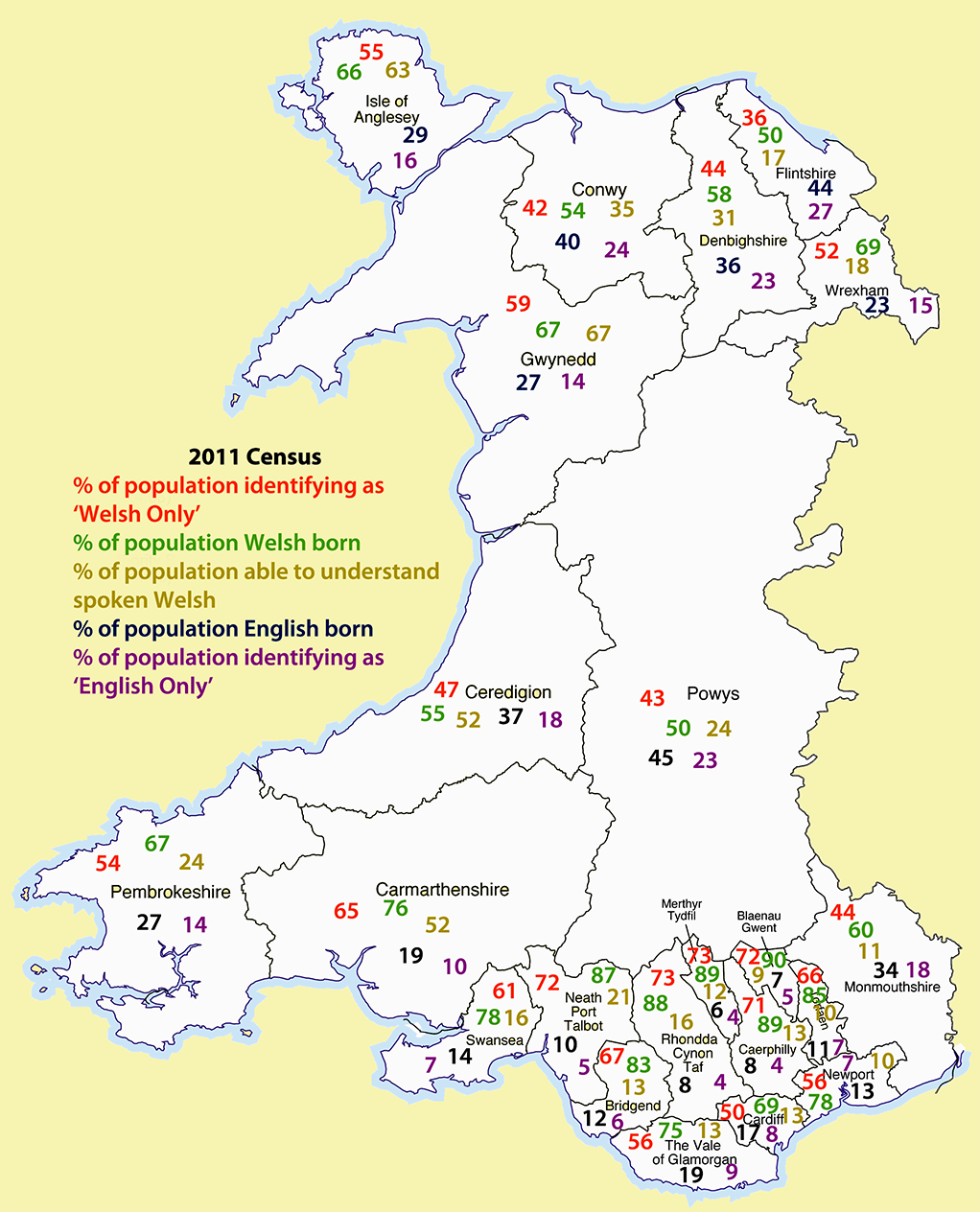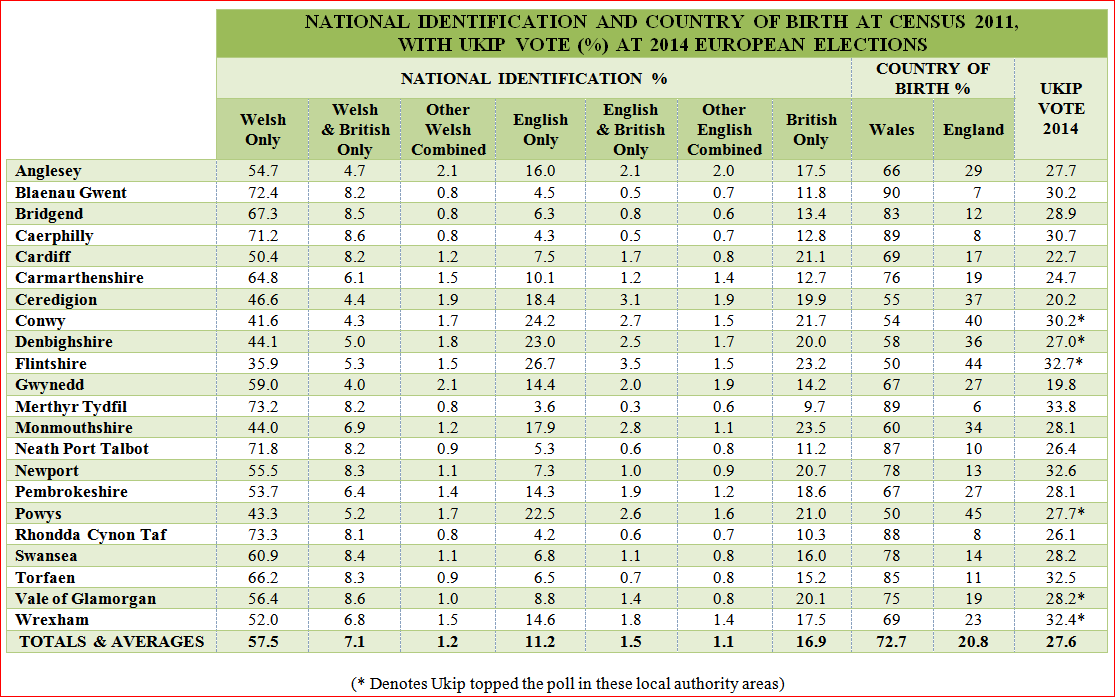Don’t worry, I won’t be looking at every incident we’ve witnessed in recent weeks, or dwelling on the insane sentences handed down for poking your tongue out at cops, or being a couple of streets away from a riot.
This post is made up of assorted observations and musings about the situation in the UK and elsewhere, particularly the USA. And while the different sections may not at first sight appear to link, believe me, they do. Taken together they help explain why we are where we are.
Well, that’s certainly what I think. But you’re free to form and express your own opinion. Because that’s how democracy should work.
◊
INTRODUCTION
We are witnessing a co-ordinated assault on the white working class. And so we need to ask why, for the first time ever, this group finds itself under attack from all sides.
Because in times past workers and peasants were defended by radicals, thinkers, certain churches, even poets. More recently they had political parties. But today, the white working class is not simply abandoned, it is openly reviled.
I’m old enough to remember a time when the working class was the ‘vanguard of the revolution’, extolled by the comrades and lauded by intellectuals. Horny-handed sons of toil who would lead us to the Promised Land, or the Sunlit Uplands (depending on which ticket you’d bought).
But a major ‘problem’ with members of the white working class always was that despite voting for socialist parties most were not socialist, let alone revolutionary. Most just wanted something better for themselves and their children.
I can confirm this from my own background and upbringing.
And as was discovered in a famous blind survey done in 1929 in Germany, even those who voted for socialist parties could switch to the right because they were socially conservative, believing in law and order, the family structure, and the homeland.

Cracks appeared in the 1980s, with Margaret Thatcher in the UK and Ronald Reagan in the USA, both of whom enjoyed working class support. Then came flirtations with UKIP and the Brexit Party; the fall in trade union membership; before finally, and fatally, voting for Brexit in 2016.
In the same year, many of their blue collar cousins voted for Donald Trump. Making 2016 the watershed year, the final rupture between lower orders and an elite now being worked into frenzies by contrived ‘crises’.
Those the left had once revered were now redundant, in more senses than one.
◊
‘MY SELFISH GRAN!‘
One of the most revealing pieces in the wake of Brexit came from the BBC. I assumed some executive sent a crew down to interview his kids and their friends at Glastonbury. The video produced was a hoot.
One boy interviewed blamed his gran, “who’s going to probably die in the next couple of years“. No thought from the arrogant little sod that his gran, and her generation, have contributed their lives to the country they live in, and that gives them a say in the future, however little of it they see.
Another report from the BBC said that ‘non-graduates’ were more likely to have voted Leave. In other words, the futures of Arabella and her chums at ‘Glasto’ had been blighted by a bunch of thick bastards. How could the oiks be so selfish!
The reporting after Brexit, and then the Trump victory in November, got a little febrile. For some of our betters it really was the end of civilisation as they’d imagined it – people were no longer listening to them!
And it reeked of caste arrogance.
But as I say, doubts had been growing for some time about the trustworthiness of the white working class; 2016 merely confirmed the worst fears of the metropolitan elite.
It would have to be replaced. (The white working class not the metropolitan elite.)
And so it came to pass that the hard left and the metro elite (often difficult to tell apart) fell in with the Globalist plan to replace the ‘useless eaters’ with migrants from countries that might appear to be shit-holes, but had been thriving and prosperous democracies before the arrival of the (now increasingly vilified) white man.
Or so we’re expected to believe.
And so, to replace the white working class the left adopted minorities and migrants. But to ensure success they would need more minorities, and more migrants. That’s why today we have 69 genders, DEI, open borders, and ‘‘the global majority‘.
The last in that list is the latest variant of, ‘Let’s all gang up on Whitey!‘ It seems to believe a Chinese nuclear physicist will identify with George Floyd.
Naked racism. But so ‘progressive’.
◊
A BRIEF NOTE ON GLOBALISM
I’ve explained Globalism enough times on this blog, but for those who missed it, or weren’t paying attention, I’ll give a quick recap.
By Globalists I mean unaccountable corporations like BlackRock and Vanguard; equally unaccountable supranational bodies such as the EU Commission, the UN (and its many agencies); and multi-billionaires who fund far left politicians and public officials, who breed and release mosquitoes, or who manipulate the weather.
All brought together by the World Economic Forum and other bodies. Also attending these gatherings are young politicians, to be flattered and groomed.
To the point where most national governments in the West are little more than the Globalists’ local management teams.
Those that reject Globalism will be isolated and attacked, traduced by the Globalist media. We’ve seen it with Trump, Farage, Milei, Le Pen, Meloni, Orban and many others, including Putin. The pattern is consistent and predictable.
◊
NOTHING NEW
Political leaders being just figureheads takes me back to the early ’60s, and a phrase that’s haunted me since then. It was something said by Lee Harvey Oswald in Dallas Police HQ.
To insistent reporters, he says, “I’m just a patsy“.
Let me make clear that I don’t dispute Lee Harvey Oswald was involved in the plot to assassinate John F Kennedy. But I believe that by the time that recording was made he’d twigged he was being sacrificed to draw attention away from others.
And so he was silenced, by a shady individual, originally from Chicago, and with strong Mafia ties, who just waltzed in off the street with a gun in his pocket.
I’m afraid that’s how the USA has been run for a long time. And deep state control worked fine under the uniparty system. Which is why Globalism could be viewed as the deep state’s uniparty model taken beyond the USA.
The deep state that has orchestrated regime changes, invasions, proxy wars, that have killed millions, and brought misery to many millions more.
Of course liberals and leftists oppose this behaviour.
Yet when the deep state / Globalists preach ‘diversity’ and ‘saving the planet’ the left can’t get their placards and paint out quick enough.
Are they really that stupid?

If Lee Harvey Oswald is ancient history to you, then remember Jeffrey Epstein, who could have destroyed many powerful people, perhaps the deep state itself . . . if he hadn’t conveniently suicided himself in 2019. Done in a high security facility that suddenly suffered malfunctioning CCTV cameras and absent guards.
Then, just last month, a strange young man was allowed to walk around a crowded field with a rifle, use a rangefinder to judge the distance to his target, put up a ladder, and crawl over a roof to fire shots at Donald Trump.
Everybody saw him – but nobody did anything until the shots had been fired. Then he too was killed before he could talk.
Shortly afterwards Joe Biden was told he’d resigned as figurehead president. (You didn’t think stumblin’, mumblin’ Joe was really in charge!)
So who do you think’s running the USA right now? I’ll tell you.
The same people who’ve been calling the shots for 60 years or more (apart from one recent interlude), and will continue to run the USA, and the West, if the votes can be rigged to get Harris elected.
Which neatly brings us up to the modern period.
◊
COVID, WORLD HEALTH ORGANISATION, DONALD TRUMP
Trump in the White House did not build the wall he’d promised, but neither were the floodgates opened (as would happen under his successor). However the deep state couldn’t risk him having a second term.
So let’s recall how things worked out.
The presidential election was scheduled for November 3, 2020. Covid was first reported in China – at a US-funded lab – in late 2019. The first case outside of China was reported in Thailand January 13, 2020.
And on it went with, what in retrospect, may have been a very important development. One that helped seal Trump’s fate in the 2020 presidential election.
July 7, 2020 The number of confirmed COVID-19 cases in the U.S. surpasses 3 million.
The U.S. begins the process of withdrawing from WHO.
One of Joe Biden’s first acts after being inaugurated in January 2021 was to reverse Trump’s decision for the USA to leave the World Health Organisstion (WHO).
The WHO is a UN agency. One that has increasingly – and largely thanks to Covid – taken on itself a role that it was never set up to fulfil. To the extent of over-ruling elected governments to enforce lockdowns, travel restrictions, and censorship.
For the WHO complements the political and economic agendas of the WEF and other Globalist organisations.
Things came to a head earlier this year with the WHO’s plan for a global pandemic treaty, which was rejected by a number of countries. There were many reservations about handing so much power to a body of unelected bureaucrats.
It may also have failed because it was rushed through. And if it was rushed through, then it could have been the prospect of Trump winning in November that explains the haste.

Here’s the article from which the above panel comes (with working links).
The events of 2016 proved that the white working class in the anglosphere was losing faith in its elites and the systems that sustained those elites.
Though in the UK, the political establishment tried to carry on very much as if Brexit had never happened. While still managing to blame (non-graduate) Brexit voters for just about anything that went wrong.
In the USA, the priority became stopping Donald Trump being re-elected in 2020. Which was successful, thanks to the ‘relaxations’ on the security of the voting process – justified by Covid!
Four years on the priority is again stopping Donald Trump.
◊
ELON MUSK TO THE RESCUE
Since the tragedy in Southport we’ve seen riots, ‘counter-protests’ (when there was no protest to counter), and the police and judiciary acting with unprecedented celerity and firmness.
Counter-protests in which everybody seemed to be carrying Socialist Workers Party placards. (An organisation many suspect is controlled by MI5.)

With a few exceptions, those brought before the courts and sent to prison have been white and working class. Usually from communities in northern England suffering economic decline, that may also have known ‘grooming’ gangs.
A process defended by a media that long ago prostituted itself to the Globalist elite.
A media that tells you the countryside is ‘racist’, controlled by white men all of whose ancestors kept and brutalised slaves, and where cows are destroying the planet. It’s a fascist hell behind that hedgerow!
When minds are fucked up with crap like that it’s only a short step to marching with placards declaring, ‘Gays for Hamas’.
Which may explain why fewer and fewer of us bother with the established media. We get our news from the internet, and the most popular social media platform is Elon Musk”s X. Which is why it’s being targeted by the Globalists and their puppets.
Not just just because Musk allows free speech, but also because he plans to put tens of millions into the Trump campaign coffers. Additionally – though few seem to know – because he’s planning to launch a rival search engine to Google.
For Google is very much under Globalist control. Manifest in some truly bizarre ways. Such as hindering searches for the Trump assassination attempt!
And Google has run into other problems.
◊
BE CAREFUL WHAT YOU WISH FOR
I’m a big fan of The Simpsons, recording episodes from Channel 4. I must have hundreds saved. Last Thursday, feet up on pouffe, I watched Series 26 Episode 21.
In which Bart gets bullied at the school dance. So mom Marge calls a town hall meeting that votes to outlaw bullying. And do you know what happens? People start accusing those they don’t like – of bullying. And the accused get arrested.
Every trivial little thing becomes ‘bullying’. For example, Homer accuses Apu at the Kwik-E-Mart of bullying because he put too much ice in Homer’s soda.
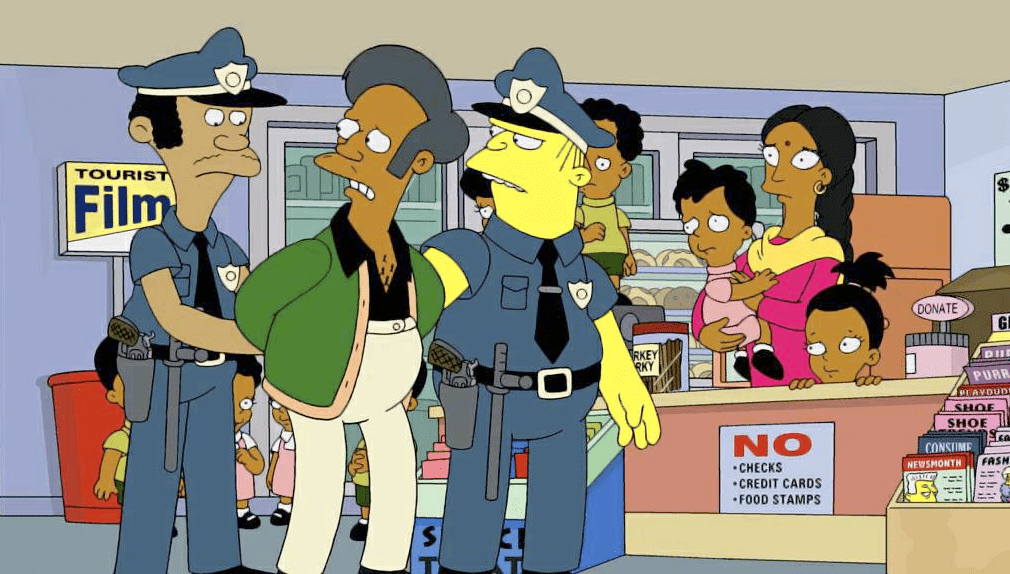
Later, Homer sits on the couch with children Lisa and Bart watching more arrests on TV. Lisa sagely concludes, “The police are arresting basically anyone they want to.” Homer replies, “Lisa, you’ve got to learn to trust your government“.
Then he picks up a table lamp from alongside the couch and says into the lampshade – in an obvious attempt to convince whoever might be listening – “Which is what I do”.
Inevitably, Homer too is arrested, when the Flanders boys next door complain about him bullying their father. As he’s being ‘cuffed, Homer says, “Oh, I never dreamed that a law I had abused could be applied to me“.
Homer eventually has to crawl, literally, to beg Ned Flanders’ forgiveness, which is slow in coming. For the real punishment is publicly humiliating and neutering a ‘bully’.
There is a political message in this episode on a par with anything that used a more serious format to warn us of totalitarianism.
But if you still don’t get it . . . substitute for bullying ‘hate speech’, ‘disinformation’, ‘racism’, ‘misinformation’, ‘Islamophobia’.
And check your lampshades!
◊
CONCLUSION
I’ve referred throughout to the white working class, but what’s really at stake is the survival of the countries built by white people. What were once prosperous and stable democracies, now under attack from all sides.
On the one hand we have the Globalists, but we don’t see them, for they operate through their captured politicians. And at street and societal level, they work through pressure groups, NGOs, uncontrolled immigration, climate hysteria, and just about anything that can make the West ‘wobble’.
And of course the Globalists still have traditional media. Because when you control the narrative you can lie to your heart’s content, and call anyone who challenges you with the truth a ‘conspiracy theorist’, or a pusher of ‘misinformation’.
As we saw a few weeks ago.
When a misidentification of the Southport killer as a Muslim immigrant was quickly capitalised on to become Starmer’s Reichstag Fire moment.
1/ A silly mistake became ‘misinformation’, and was used to bring in a crackdown on social media that was surely already planned.
2/ The UK government and the media introduced ‘Islamophobia’ into the mix in order to further justify the crackdown. (And maybe future legislation.)
3/ Attributing the riots to the initial misidentification of the killer allowed the government to avoid the real cause of the riots – uncontrolled immigration.
Leaving us in a sort of stand-off.
For the time being, a disgruntled white working class has been cowed, but the cause of the anger cannot even be whispered, let alone addressed. Yet we know that when people are backed into a corner, frustrated and angry, they often lash out.
The onus is therefore on the UK government to defuse the situation by reaching out to its own people, to assure them they are not victims of a ‘two-tier’ system, and to at least listen to their concerns.
What they must not do is punch down harder on the white working class, or anyone else expressing dissent. Only dictatorships do that.
♦ end ♦
© Royston Jones 2024



